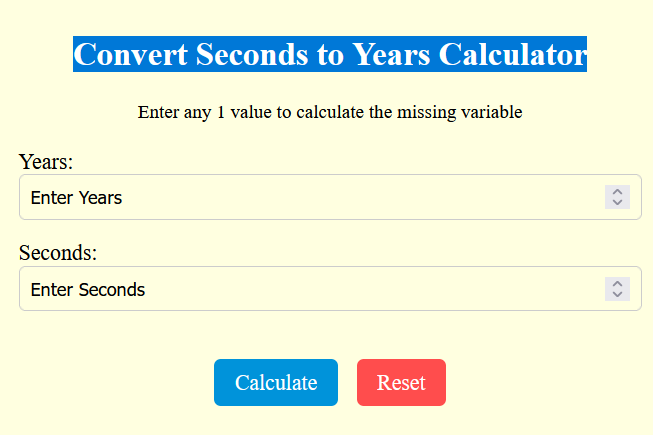Divide the dry solid weight (DSW) by the sample volume (SV) to determine the bulk density (BD).
The Bulk Density Calculator simplifies the process of calculating the bulk density of various materials. These materials may include soil, powders, and construction aggregates. Bulk density is an essential parameter in industries like agriculture, construction, and material science to assess the compactness and porosity of materials.
By utilizing the dry weight of a material and its volume, this tool ensures quick and precise calculations. Whether you’re managing soil quality, designing structures, or working with powders, this calculator provides reliable and efficient results.
Formula:
BD = DSW / SV
| Variable |
Description |
| BD |
Bulk density (g/cm³ or kg/m³) |
| DSW |
Dry solid weight (g or kg) |
| SV |
Sample volume (cm³ or m³) |
Solved Calculations
Example 1:
If the dry solid weight is 500 g and the sample volume is 250 cm³:
| Step |
Calculation |
Result |
| Dry Solid Weight (DSW) |
500 g |
|
| Sample Volume (SV) |
250 cm³ |
|
| Formula Used |
BD = 500 / 250 |
|
| Bulk Density (BD) |
2 g/cm³ |
|
Example 2:
If the dry solid weight is 1200 kg and the sample volume is 1.5 m³:
| Step |
Calculation |
Result |
| Dry Solid Weight (DSW) |
1200 kg |
|
| Sample Volume (SV) |
1.5 m³ |
|
| Formula Used |
BD = 1200 / 1.5 |
|
| Bulk Density (BD) |
800 kg/m³ |
|
Bulk Density Calculator | Bulk Density Of Soil, Density Calculator 2025
The Bulk Density Calculator is a versatile tool. This is crafted to calculate the bulk density of materials, typically used in industries like agriculture, construction, and pharmaceuticals.
This tool is especially useful for determining bulk density values in kilograms per cubic meter (kg/m³) or grams per milliliter (g/mL), making it easier to assess material properties like soil, powders, or construction aggregates.
It addresses common queries, such as how to calculate bulk density, how to convert bulk density to specific gravity, and how to determine soil bulk density.
By using this calculator, users can input key variables like mass and volume to quickly and accurately compute bulk density, saving time and reducing errors in manual calculations.
This tool is ideal for applications like calculating soil compaction, measuring powder density for pharmaceuticals, or estimating the density of bulk materials like cement or fertilizer. Its user-friendly design ensures precision for both academic and industrial use.
Final Words:
To conclude, the Bulk Density Calculator is an indispensable resource for efficient and accurate material density calculations. It simplifies complex equations, providing reliable results for various professional and academic applications.






